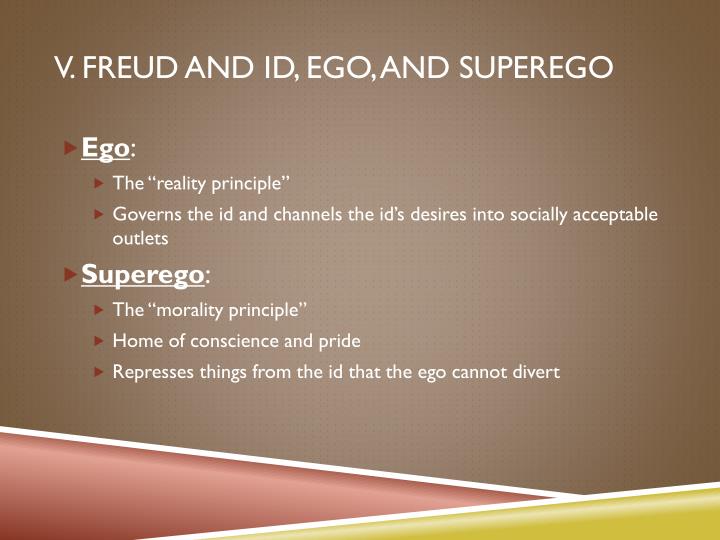

To temper the id's urges, the ego steps in to acknowledge an objective reality that must be dealt with. If left to its own appetite, the id would be unable to function in the world. If it had its way it would forever seek indulgence, the same way a young child seeks only to get his or her selfish needs met. The superego can be represented by both the unconscious and conscious mind depending on the particular function it is serving.Įxplanation The id never matures, remaining infantile in its impulses and urges while seeking pleasure and avoiding tension at all costs. The superego represents the ideals of society as they are passed from one generation to another. It represents the ideal, rather than a reflection of reality, and strives for perfection instead of pleasure. It imposes a moral code, concerning itself with whether a particular action is good or bad right or wrong. The superego is the judicial branch of the personality. The ego functions as part of the conscious mind. It acts as the "executive" branch of the personality that governs, controls, and regulates matters of life. The ego (literally "I") is the personality structure that develops to deal with the real world and solve the problems of life. In other words, there is a real world out there that must be reckoned with. The ego, in contrast, works not by the pleasure principle but rather by the reality principle. That is, it wants to satisfy its desires so as to relieve the tension. Therefore the id operates according to the demands of what Freud called the pleasure principle. The id cannot tolerate tension and works to discharge tension as quickly as possible and return to a balanced state.

It lacks organization and is demanding, insistent, and impulsive. It is infantile in the way it manifests and functions on the unconscious level. In German, the word was literally translated as the "it." The id is primarily the source of psychic energy and the core of all instincts. The id is the original system of personality and the dominant one at birth. Freud viewed human beings as energy systems, where only one system can be in control at any given time, while the other two systems give themselves over to the psychic energy of the one in control. These systems he named the id, ego, and superego. Main points Freud further divided the conscious and unconscious mind into three structures or systems that performed different roles.


 0 kommentar(er)
0 kommentar(er)
